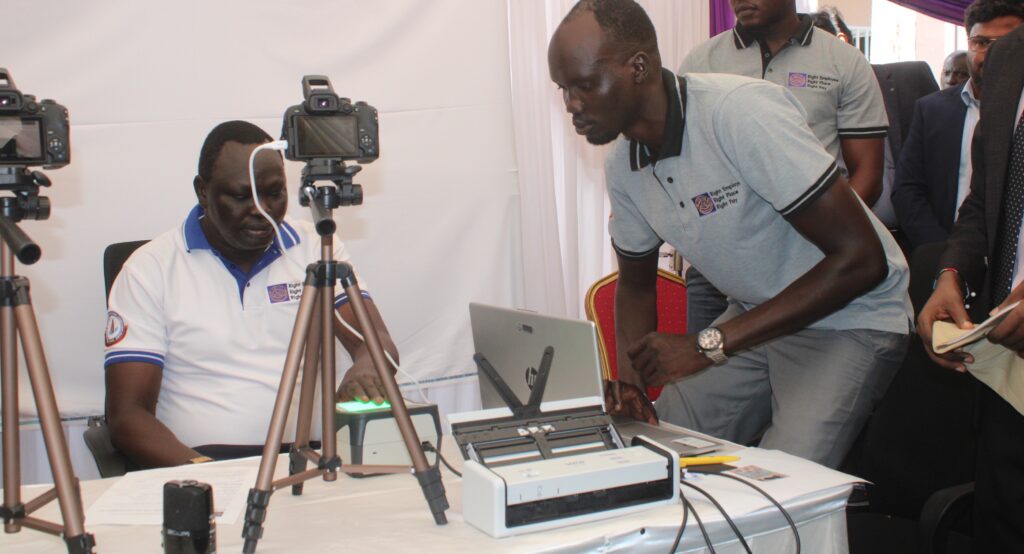The South Sudanese government on Tuesday launched a nationwide headcount and biometric registration exercise aimed at cleaning up the public sector payroll and eliminating so-called “ghost workers.”
The two-year project is being carried out by the Ministry of Public Service and Human Resource Development, in collaboration with the Ministry of Finance and Planning and the World Bank Group. It seeks to verify, validate, and update personnel records for all public servants to ensure accurate workforce data, improve payroll management, and enhance transparency in government operations.
The exercise will be conducted in phases, beginning with civil servants based in Juba. It will later extend to employees in the states and administrative areas, foreign missions, and organized forces.
Speaking at the launch ceremony in Juba, Dak Duop Bichiok, Minister of Public Service, said the initiative is intended to strengthen payroll integrity and remove non-existent employees from the system.
“The government is undertaking this comprehensive headcount to verify the legitimacy of personnel across ministries, departments, and agencies,” Duop said. “This exercise aims to eliminate ghost workers and ensure efficient human resource management across the public sector.”
The initial phase will cover five key ministries, including Presidential Affairs, Cabinet Affairs, Public Service and Human Resource Development, Finance and Planning, and Foreign Affairs and International Cooperation.
Duop said the objectives of the headcount are to confirm the existence of civil servants and organized forces on the government payroll, remove ghost workers, update personnel records, and enhance payroll efficiency.
“The benefits of this initiative are significant. It will ensure salaries are paid only to genuine employees and help the government make better use of limited public funds,” he said.
Benjamin Ayali Koyongwa, Undersecretary of Planning at the Ministry of Finance and Planning, described the initiative as a milestone in improving transparency, efficiency, and accountability in South Sudan’s public sector.
“This initiative demonstrates the government’s commitment to ensuring that every part of the public service is accurately identified and counted,” Ayali said. “It is not just an administrative exercise; it is a transformative step in managing the backbone of public service delivery.”
Charles Undeland, Country Manager for the World Bank Group in South Sudan, said the registration is critical for building an effective, transparent, and accountable public sector.
“If you don’t have a clear record of who your public servants are, it becomes difficult to manage recruitment, promotions, training, and pensions,” Undeland said. “Having a reliable database of public servants will help the government manage its wage bill and allocate resources more efficiently.”
For years, South Sudan’s civil service has struggled with weak institutional structures, poor record-keeping, and widespread administrative malpractices.
The public sector has long been plagued by “ghost workers” — non-existent employees listed on the payroll — as well as inflated salaries, delayed payments, and overlapping positions.




